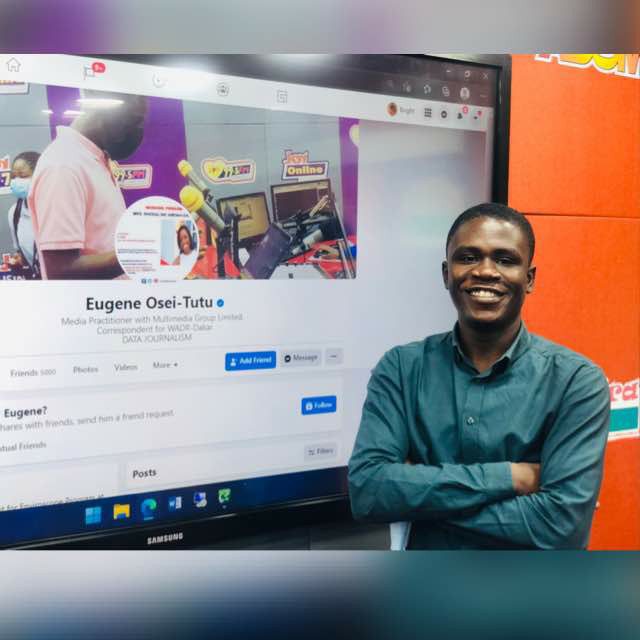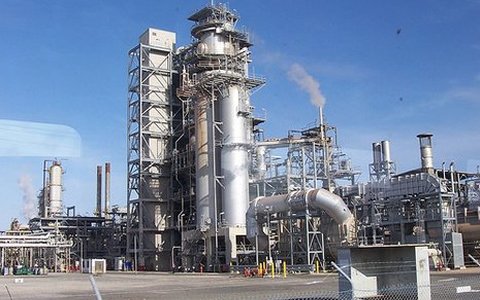Before 1954, there were no refineries in Africa. In the 50 years between 1954 and 2004, 48 refineries were built in Africa.
In 1954, the first African refineries were built in Algiers (CFP/Total) and Durban (Socony/Mobil). These were followed by the building of the Luanda refinery (Petrofina) in 1958, and refineries in Kenya (Shell/BP), Ghana (ENI/Agip), and Senegal (consortium), in 1963.
In the 1960’s, refineries were also built in Cote d’Ivoire, Gabon, Tanzania, Nigeria (Port Harcourt I), and Capetown. In the 1970s, following the nationalisation of the oil industry in many countries, several state-controlled refineries were built, such as Arzew in Algeria, Warri in Nigeria, CORAF in Congo, and SoNaRa in Cameroon.
A final burst of refinery building took place in the 1980s, including refineries at Warri and Port Harcourt in Nigeria. Whilst there have been several modernization projects since then, the only new refineries built in the past 10 years have been Khartoum in 2001, and MIDOR in Egypt in 2002.
All refined products were supplied to Africa from European and American refineries, with SHELL and MOBIL operating in West Africa.
Tema Oil Refinery then GHAIP, started operations in 1963 as a tolling refinery by processing crude oil from multinational companies into finished products for a fee. Over the past 50 years, TOR has evolved from a simple hydroskimming plant to a conversion refinery, providing the petroleum needs of the nation.
The refinery was built through the initiative of Ghana's first President Osagyefo Dr Kwame Nkrumah to spearhead and stimulate Ghana’s economic, industrial, investment and development activities. Osagyefo believed that someday, Ghana would discover crude oil which could be processed at the refinery for value addition.
In 2010, the dream Nkrumah had in the 60s came to reality when Ghana started commercial production of oil in December 2010. Nkrumah, like many of his compatriots like Julius Kambarage Nyerere, had the foresight of Jewish prophets and history has proven them right on many fronts.
In January 1961 under Nkrumah, the government of Ghana reached an agreement signed with Ente Nazionale Indrocarburi (ENI), an Italian company for the construction of an oil refinery. The Refinery was built for £8.5 million. With the construction, Ghana was positioned as one of the countries with a refinery and the 6th largest in Africa with a capacity of 28,000 barrels per stream day. The company was called Ghanaian Italian Petroleum (GHAIP) Limited, which was owned 100% by ENI.
The Tema Oil Refinery was originally named the Ghanaian Italian Petroleum (GHAIP) Company and incorporated as a Private Limited Liability Company under the Companies Ordinance (Cap 193) on December 12, 1960. The refinery was 100% owned by the ENI Group (Ente Nationalie Indrocarburi) of Italy. The Government of Ghana bought all the shares of GHAIP in April 1977 and became the sole shareholder. In 1990, the name was changed to the Tema Oil Refinery (TOR).
Why am I writing about TOR? I am doing so because the recent hikes and spikes in petroleum prices have brought up a lot of advocacy and questions about a critical state infrastructure, the Tema Oil Refinery, and how it is not functioning. So I set out to read and research this institution.
The Institute of Energy Statement recently issued a statement in June 2022 on TOR and I quote: “At a time this nation needs it most, the refinery has ceased to play any meaningful role in managing fuel price and supply risks while pockets of fuel shortages are recorded – with the price of fuel almost quadrupling in the past 6 and half years, stoking inflationary pressures on the entire economy as Ghanaians”.
The price of fuel in Ghana is determined by a formula that takes into consideration the following factors; The world market price of each petroleum product; The freight cost from the source to Ghana, storage costs, and all other associated costs incurred before supply to retail outlets (referred to as the Suppliers’ Premium), the Ghana Cedi (GHS) to US Dollar (USD) exchange rate, he taxes/levies on each petroleum product and the OMC margins.
With our tumbling cedis, and the Russia-Ukraine war leading to the weaponization of oil and petroleum products, prices at the pump will increase. But in all this, what can Ghana do to cushion its citizenry? How can TOR be strategically placed to operate to deliver the desired economic gains, energy security, and relatively cheaper prices at the pumps?
Aside from our importation of crude, the majority of the final products we use in Ghana are refined in Rotterdam in the Netherlands. There are 5 refineries in Rotterdam, Shell Nederland, ExxonMobil, Vitol, BP and Gunvor Petroleum Rotterdam. The refineries in the port have a combined distillation capacity of 58 million tonnes. “Little Rotterdam” has placed itself strategically to cash in our refining crude and cashing in a significant amount.
Ghana has traditionally been a net importer of crude oil. From January to June 2022 alone, Ghana imported $5.28 billion worth of oil products according to the summary of economic and financial data of the Bank of Ghana. By simple extrapolation, we will import over $10 billion in importing oil products into the country.
In my research and readings, the Tema Oil Refinery is a hydroskimming plant. A petroleum engineer, Justice Offei, explains Hydro-skimming refineries refine better than topping refineries because of the addition of hydrotreating and reforming units to the basic configuration that makes up a topping refinery. Hydro-skimming plants can produce refined products from little feedstocks as well as high-octane gasoline. Also, it can produce naphtha as well as hydrogen as by-products.
The addition of a few other functional units such as hydro-treating, hydro-cracking, and a few others to hydro-skimming refineries makes them more efficient than topping refineries. However, hydro-skimming plants may not deliver high-quality petroleum products as most of their outputs are usually residual fuels. Also, their low-quality output remains a challenge because more consumers are shying away from sulfur-filled petroleum products.
This type of plant makes it a challenge to refine petroleum products desired in the sector currently. The experts also alluded to the fact that TOR currently cannot refine some of the crude oil that Ghana produces at our Jubilee fields which is called high-grade sweet light oil.
Therefore it begs the question, all these years, why has TOR not seen major restructuring to place it on a pedestal to deliver on its mandate of spearheading and stimulating Ghana’s economic, industrial, investment and development activities? If TOR refines oil here and with our current regulation regime, the government through the NPA can commission Oil Marketing Companies who do this importation to refine some of their products here.
These companies will retain some foreign currency in our country, take some pressure off our jittery cedi, create jobs, etc. Currently, the Tema Oil Refinery has a staff strength of 615, 8 Board Members and a managing director with 9 general managers and supervisors who see to the day-to-day administration of the company. These figures are available on the company’s website. We need to put these huge numbers of people on the payroll to work.
In 1977, under General Acheampong, a man whose ideals, vision, and programs still live on, and one whose 6-year rule presents many lessons to learn and fix our recurring economic paralysis. He simply found himself entrapped in a historical quagmire, the reason why he is not talked about much, Ghana acquired a 100% stake in TOR and the Crude Distillation Unit was engineered to 45,000 barrels per stream day.
With significant investment to refocus and re-engineer because of its current challenges intimated above, Ghana can become a significant giant of West Africa in the petroleum refining industry if TOR function and that will have a significant say on what we pay at the pump.
COVID-19 and the ongoing Russia-Ukraine war have presented us with an opportunity to rethink our national conversation and development. We must not miss an opportunity to miss an opportunity. I, therefore, expect that we draw lessons from this war and strategically position TOR to explore opportunities in the petroleum value chain, build synergies between the local upstream and downstream petroleum industries, add real value to national output and save the economy from imported inflationary pressures.
We all must clamour for TOR to be provided with the requisite leadership and direction required to maintain and grow TOR. We must fix TOR!

Eugene Osei-Tutu is a producer, researcher and writer with LUV FM, a subsidiary of the Multimedia Group Limited.
Latest Stories
-
Shatta Movement apologises to Ghana Society of the Physically Disabled after backlash
11 mins -
Sammy Gyamfi writes: Tema-Mpakadan Railway Project; A railway line to nowhere
42 mins -
Bright Simons: Is the World Bank saving or harming Ghana?
58 mins -
CAF Cup: RS Berkane banned from entering Algeria because of a map of Morocco with its Sahara
1 hour -
The media isn’t doing what is expected of journalism – Sulemana Braimah
1 hour -
Truck driver who caused train accident jailed 6 months
2 hours -
Music review: Okyeame Kwame proves rap dexterity on ‘No Competition’
2 hours -
How a 23-year-old fooled the internet with an AI Kendrick Lamar diss track
2 hours -
No man should be intimidated by the strength of a woman – Charlotte Oduro
2 hours -
Ghana is not immune to terrorist attack – National Security
2 hours -
WAFU B U-17 Championship: Ghana drawn in Group A, face Benin and Cote d’Ivoire
3 hours -
Two hit by stray bullet as Police clash with ‘wee smokers’
3 hours -
Peter Amewu blames truck driver recklessness for train accident
3 hours -
Okyeame Kwame aims for another Artiste of the Year win after 15 years
3 hours -
NAGRAT gives government one-week ultimatum to redeem unpaid pensions for 700,000 workers
3 hours

